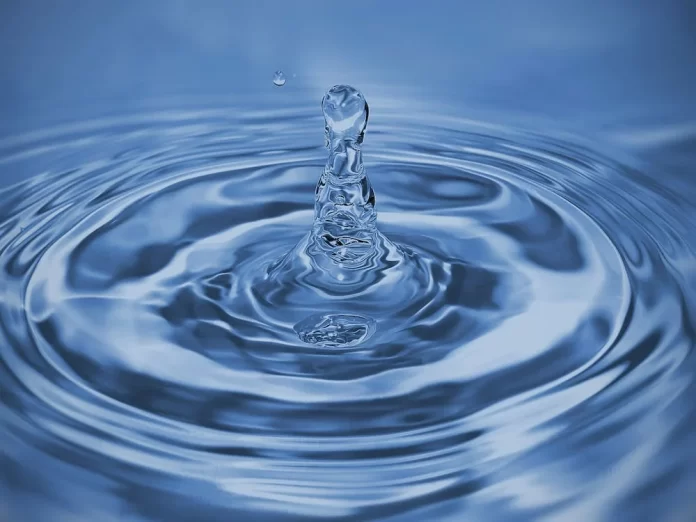In the scorching summer heat, there’s nothing quite as refreshing as an ice-cold beverage. Whether it’s a chilled soda, a frosty cocktail, or a refreshing glass of water, the quality of the ice can make or break the experience. Have you ever wondered what goes into producing that crystal-clear ice that enhances your drink? The answer lies in water filtration systems’ often overlooked but indispensable role in commercial ice makers.
How Commercial Ice Makers Function
Before diving into the intricacies of water filtration, let’s take a moment to understand how commercial ice makers work. These marvels of modern technology are designed to produce large quantities of ice quickly and efficiently. The process begins with water entering the ice maker, frozen into ice cubes or other shapes. The ice is then harvested and stored until it’s ready to be used.
Water Contaminants and Their Impact on Ice Quality
While water seems simple, it can contain many contaminants that affect the taste and quality of the ice produced. Common culprits include sediment, chlorine, organic impurities, and dissolved solids. These contaminants can give ice an unpleasant taste and cloudy appearance and even pose health risks to consumers.
The Benefits of Water Filtration Systems in Commercial Ice Makers
Enter water filtration systems, the unsung heroes behind impeccable ice quality. These systems play a crucial role in enhancing the taste, clarity, and purity of the ice produced. By effectively removing impurities, they ensure that every cube that finds its way into your glass is a picture of perfection. But the benefits continue beyond there.
Besides elevating ice quality, water filtration systems also contribute to cost savings and longevity of equipment. By reducing the presence of contaminants, they minimize the need for frequent maintenance and repair, saving businesses valuable time and money. Moreover, these systems are designed to meet health and safety regulations, ensuring that the ice served to customers is of the highest standard.
Types of Water Filtration Systems for Commercial Ice Makers
Water filtration systems come in different types, each serving a specific purpose in purifying water for ice production. Let’s explore the most common types:
Sediment Filters:
These filters act as the first line of defense, removing visible particles and debris from the water supply. By trapping sediment, they prevent clogging and ensure that only clean water reaches the ice-making process.
Carbon Filters:
Carbon filters are renowned for eliminating chlorine and organic impurities, which can negatively impact the taste and odor of ice. These filters use activated carbon to absorb and trap contaminants, producing remarkably clear and pure ice cubes.
Reverse Osmosis Systems:
When eliminating dissolved solids and minerals, reverse osmosis systems take center stage. By applying pressure to the water and passing it through a semipermeable membrane, these systems effectively remove impurities, resulting in water that’s almost as pure as a mountain spring.
Factors to Consider When Choosing a Water Filtration System
Selecting the right water filtration system for your commercial ice maker requires careful consideration. Here are some key factors to keep in mind:
Water Quality Analysis and Assessment:
Understanding the composition of your water supply is essential in determining the type and capacity of filtration system required. A thorough analysis can help identify specific contaminants and devise an effective filtration strategy.
Capacity and Flow Rate Requirements (Continued):
The water filtration system’s flow rate is vital. It should be able to keep up with the ice maker’s water intake to ensure a continuous supply of purified water for ice production.
Maintenance and Filter Replacement Considerations:
Regular maintenance is necessary to keep the filtration system operating at peak performance. Look for systems with user-friendly maintenance requirements and easily replaceable filters. Consider the cost and availability of replacement filters to ensure hassle-free upkeep.
Installation and Integration of Water Filtration Systems
Now that you’ve selected the ideal water filtration system for your commercial ice maker, it’s time to focus on installation. Proper installation is crucial to ensure optimal performance and longevity of the filtration system and the ice maker. Here are some important considerations:
Proper Installation Procedures for Commercial Ice Makers:
Follow the manufacturer’s guidelines and instructions when installing the ice maker and water filtration system. It includes correctly connecting the plumbing, ensuring proper drainage, and providing adequate space for ventilation.
Integration with Existing Plumbing and Ice Machine Infrastructure:
Assess your current plumbing system and ice machine setup to determine how the water filtration system can seamlessly integrate. Consider factors such as available space, compatibility of connections, and any modifications required to accommodate the new filtration system.
Maintenance and Care of Water Filtration Systems
Regular maintenance is crucial to keep your water filtration system running smoothly and effectively. By following these maintenance tips, you can maximize the system’s lifespan and ensure the production of pristine ice:
Routine Maintenance Tasks for Optimal Performance:
Regularly inspect the filtration system for any signs of wear or damage. Clean the system as the manufacturer recommends, ensuring all components are free from debris and buildup. Check for leaks, loose connections, and any potential issues affecting performance.
Filter Replacement Schedules and Indicators:
Filters have a limited lifespan and should be replaced at regular intervals. Follow the manufacturer’s recommendations for filter replacement based on usage and water quality. Some filtration systems feature built-in indicators that notify you when it’s time to change the filter, simplifying maintenance.
Troubleshooting Common Issues:
Despite proper maintenance, occasional issues may arise. Please familiarize yourself with common problems and their solutions, such as low water pressure, filter clogging, or unusual tastes in the ice. Promptly address these issues to maintain optimal ice quality and system performance.
The Role of Water Filtration in Ice Machine Longevity
Water filtration systems not only enhance ice quality but also contribute to the longevity of commercial ice makers. Here’s how:
Preventing Scale Buildup and Equipment Damage:
By removing impurities from the water supply, filtration systems help prevent scale buildup in the ice maker. Scale, formed by minerals and dissolved solids, can accumulate on internal components, leading to decreased efficiency, increased energy consumption, and potential damage to the ice maker.
Prolonging the Lifespan of Commercial Ice Makers:
With cleaner water flowing through the ice maker, the risk of corrosion and wear on vital components is significantly reduced. It leads to an extended lifespan, minimizing the need for frequent repairs or ice maker replacement.
Conclusion
Water filtration systems play a vital role in commercial ice maker performance and ice quality. By removing impurities and preventing scale buildup, filtration systems improve ice makers’ taste, appearance, and longevity. When selecting a filtration system, consider capacity, flow rate, maintenance requirements, and budget factors. By following proper installation and maintenance procedures, you can maximize the benefits of your water filtration system and produce high-quality ice that exceeds your customers’ expectations.
Other Technical Reviews:- Reviews












